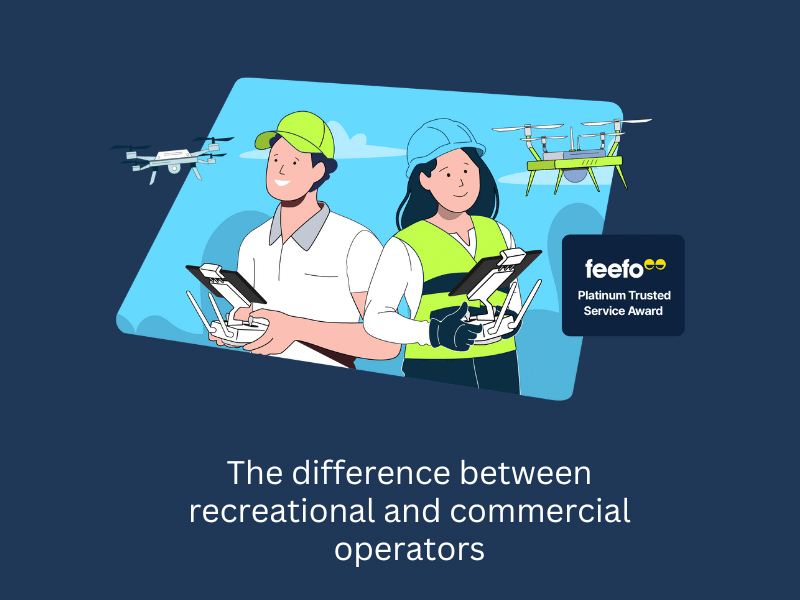When getting a quote for a drone insurance policy, the first question you’ll need to ask yourself is what type of drone operator you are.
You can either purchase recreational drone insurance (sometimes referred to as ‘hobby’ drone insurance) or commercial drone insurance and it’s important to understand the difference between the two when purchasing a policy to ensure you have the right protection in place.
The easiest way to determine this is to consider your own circumstances against the definition of a recreational drone user. A recreational drone user is classed as someone who flies a drone purely for “sport or fun/leisure with no potential commercial gain”.
If your purpose for flying falls outside of this definition, you would need to purchase a commercial drone policy to ensure you are fully compliant with EC785/2004 regulations.
Whilst this may sound pretty straightforward, there are some grey areas that it’s important to consider, particularly around the definition of ‘commercial gain’ and who this would apply to.
Below we take a look at some real-life scenarios and provide guidance on the type of policy they would need for each to ensure they have the appropriate levels of cover and protection in place.



